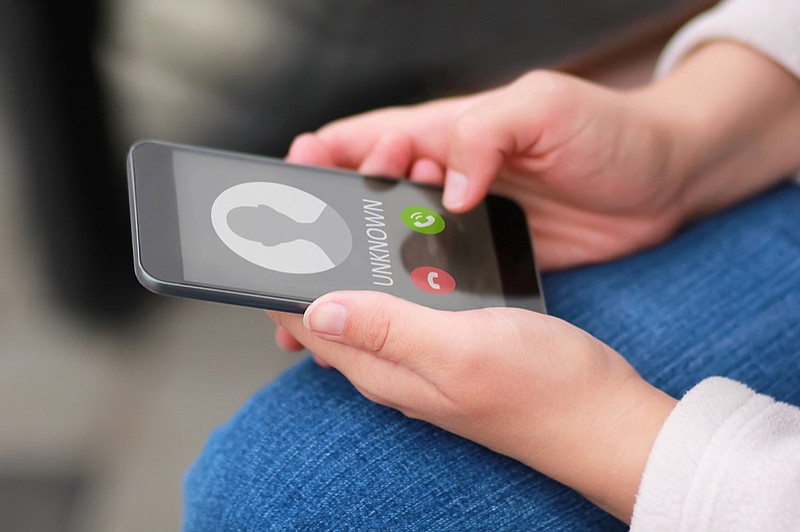Continuing with last week's harassing and frustrating robocalls, I bet all of us tear out our hair on a perpetual basis when the phone rings. It seems as if every time a so-called fix rolls around, legitimate and especially the scammers defeat it. Once upon a time, the Do Not call List was a godsend but, unfortunately, this, too, has slipped by the wayside in these days of sophisticated and fraudulent telephone technology. So what in heaven's name can poor consumers do to help avoid robo-headaches once and for all? Consumer Reports and the FTC offer some helpful tips.
Let's start with our phone carriers, of whom the biggest have pledged to support new network technology with the provocative name "STIR/SHAKEN" that promises to help identify the true origin of calls once all the program kinks are worked out.
Most providers extend alerts - many of which are free - that an incoming call might be a telemarketer and, also, distinguish and block calls from probable scammers. For example, AT&T, T-Mobile and Verizon offer free services that monitor network activity and crowdsourced reports to block suspected fraudulent calls. The carriers outsource these services to Hiya, First Orion and TNS, respectively. They do cross-check your contacts list to make sure they don't block someone legitimate.
On the other hand, those that provide extended security and call controls will cost; for instance, AT&T's Mobile Security Call & Protect Plus provides a secure WiFi virtual private network. For those who use Verizon like I do, download an app called Verizon Call Filter, available now for iPhones and coming in a few weeks for Android. In fact, this phone giant's basic service tags suspected robocalls and gives us three options based on risk level for how many to block. (All!) Most T-Mobile customers already have the company's Scam ID and Scam Block service turned on, with no need to download an additional app. For all other providers, check their websites to look for links about call security/blocking.
Call-blocking apps can block many robocalls before they reach the users. By using the FTC's blacklist as well as artificial intelligence tech that flags suspicious numbers, the app(s) can be of huge help. Moreover, they allow users to block numbers or create a list of numbers to allow. Nomorobo, of which I've written in the past, is free for landlines and costs $2 for cell phones; other free apps include Hiya, YouMail, Robokiller, Truecaller, and Mr. Number, among others. Be certain to read and understand each app's service and privacy rules.
What are some very simple tasks consumers can do to avoid robocallers?
Don't answer calls from unknown numbers. If you answer such a call without thinking, hang up immediately.
You may not be able to tell right away if an incoming call is spoofed. As mentioned in earlier columns, Caller ID that shows a "local" number (so-called "Neighborhood Spoofing") doesn't necessarily mean it's a local call.
If you answer the phone and the caller - or a recording - asks you to hit a button to stop getting the calls, just hang up. Scammers often use this trick to identify potential targets.
Do not respond to any questions, especially those that can be answered with "Yes."
Never give out personal information such as account numbers, Social Security numbers, mother's maiden names, passwords or other identifying information in response to unexpected calls or if you are at all suspicious.
If you get an inquiry from someone who says they represent a company or a government agency, hang up and call the phone number on your account statement, in the phone book, or on the company's or government agency's website to verify the authenticity of the request.
Use caution if you are being pressured for immediate information.
If you have a voice mail account with your phone service, be sure to set a password for it. Some voicemail services are preset to allow access if you call in from your own phone number. A hacker could spoof your home phone number and gain access to your voice mail if you don't set a password.
Talk to your phone company about call blocking tools it may offer and, also, check into apps to download to your mobile device to block unwanted calls.
If you use robocall-blocking technology already, it often helps to let that company know which numbers are producing unwanted calls so they can help block those calls for you and others.
And, finally, I urge each reader and every other American phone-carrier user on the face of the planet to contact the Federal Communications Commission (FCC – not to be confused with the FTC) at 445 12th Street, SW, Washington, DC 20554 to demand the agency better protect consumers from robocalls as soon as possible. Also, state that you expect (free) mandatory caller ID verification technology ASAP. If readers prefer email, send the same demands to robocallspetition.cr.org.
Contact Ellen Phillips at consumerwatch@timesfreepress.com.

